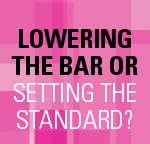 USA Today ran a story about problems in the monitoring of impaired physicians.
USA Today ran a story about problems in the monitoring of impaired physicians.
Many states lack rules to ensure that medical facilities alert law enforcement or regulatory agencies if they catch employees abusing or diverting drugs, so those staffers often are turned loose to find new jobs without treatment or supervision. Disciplinary action for drug abuse by health care providers, such as suspension of a license to practice, is rare and often doesn’t occur until a practitioner has committed multiple transgressions.
“We certainly see gaps in the system; the examples are many,” says Joseph Perz, an epidemiologist at the U.S. Centers for Disease Control and Prevention.
The challenge in addressing the problem is finding a “balanced approach,” Perz adds. “We recognize that addiction is a disease and we recognize the value in … (rehabilitating) a provider. At the same time, we need to be thinking about the potential harm to patients. That balance is difficult.”
One disappointing part of the story is that they failed to discuss the fact that, once they get into physician recovery programs, physicians have extraordinary treatmet outcomes.
The paper posted the following question on twitter: “Thousands of drug-addicted doctors, nurses escape notice, endangering patients, report reveals. What should be done?”
Thank goodness this isn’t actually the approach we take with addicted doctors:
@USATOpinion @USATODAY Patients should probably lower their expectations.
— HR Beyotch (@HRBeyotch) April 16, 2014
Too bad it is the approach we’ve taken with other patients.

Interesting. I don’t know if it is the same in the US as in Scotland (and the rest of the UK) but we have quite high rates of medical staff developing issues with drugs or alcohol. However, the case here (as far as my friends in the profession tell me) is that when found to have an issue the individual is likely to be struck off permanently (that’s just for having a problem, never mind being caught stealing medical supplies) regardless of their success in recovery. The very possibility of theft or negligence is held against them for life. For this reason many medics hide their addiction until it gets to a very serious point and it’s impossible for them to hide it; or put another way, the threat of the consequences worsens the situation, preventing them from seeking help. I think we also have to ask why there are higher rates of addiction amongst medical staff, is it the emotional stress, the hours, the responsibility? In the UK there seems to be a reluctance to ask this question, and a preference for blaming and ostracising the individual.
LikeLike
Kevin McCauley describes the U.S. Navy impaired pilot program as a huge success, largely because it takes the exact opposite of the approach you describe.
They have high rates of self-reporting because they get the help they need and they get to keep working. He describes the program as using the meaning pilots derive from their work as critical to their success.
LikeLike
Many if not all states have some sort of program to assist physicians with drug and alcohol use problems. Many have similar programs for nurses and a few have them for dentists and pharmacists. Even fewer states have umbrella programs which cover essentially all licensed or registered healthcare professionals. The effectiveness of these state programs vary from state to state but overall physicians who receive appropriate treatment, aftercare, and monitoring do extremely well. The largest study of physicians (904 physicians) showed 91% of physicians who completed treatment, aftercare and 5 yrs. of successful monitoring returned to professional practice. An overwhelming majority of the physicians in the programs studied completed the entire program. There are no similar comprehensive studies for other healthcare professionals. The elements of treatment, aftercare and monitoring in the physician’s programs are cited by some as the “gold standard” of effective addiction treatment. It is estimated by a number of authors that addiction in physicians and by extension other healthcare professions is higher than the general population but all do not agree. The issues cited by Kieran are considered by many to be contributory. However, an important point to be considered is the disproportionate representation of individuals from chemically dependent families in the healthcare professions. Studies indicate 20-25% of entering medical school freshmen and up to 50% in some nursing schools are children from chemically dependent families. So the genetic pool in these groups is weighed disproportionately toward a predisposition for the disease of addiction.
LikeLike
I’d never heard that about family histories. Very interesting.
LikeLike
Google the Ashton Manual——————————————–
LikeLike